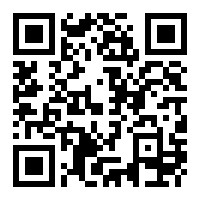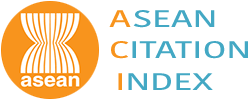The Role of Resilience in Quality of Life in a Productive-Age Population During the COVID-19 Pandemic
Abstract
Keywords
Full Text:
PDFReferences
1. World Health Organization. Coronavirus Disease (COVID-19) Weekly Epidemiological Updates and Monthly Operational Updates: Situation Reports March 2020. Geneva: World Health Organization; 2020.
2. Manuhutu R. Situasi Terkini Perkembangan Coronavirus Disease (COVID-19) 14 April 2021. Jakarta: Kementerian Kesehatan Republik Indonesia; 2021.
3. Keliat BA, Marliana T. 1. Dukungan Kesehatan Jiwa dan Psikososial (Mental Health and Psychosocial Support): Keperawatan Jiwa. 1st ed. Depok: Perpustakaan Nasional; 2018.
4. Lau JTF, Yang X, Tsui HY, et al. Positive mental health-related impacts of the SARS epidemic on the general public in Hong Kong and their associations with other negative impacts. J Infect. 2006; 53 (2): 114–124.
5. Vinkers CH, van Amelsvoort T, Bisson JI, et al. Stress resilience during the coronavirus pandemic. Eur Neuropsychopharmacol. 2020; 35: 12–16.
6. Ortu G, Mounier-Jack S, Coker R. Pandemic influenza preparedness in Africa is a profound challenge for an already distressed region: Analysis of national preparedness plans. Health Policy Plan. 2008; 23 (3): 161–169.
7. van Ballegooijen H, Goossens L, Bruin RH, et al. Concerns, quality of life, access to care and productivity of the general population during the first 8 weeks of the coronavirus lockdown in Belgium and the Netherlands. BMC Health Serv Res. 2021; 21: 227.
8. An Y, Yang Y, Wang A, et al. Prevalence of depression and its impact on quality of life among frontline nurses in emergency departments during the COVID-19 outbreak. J Affect Disord. 2020; 276: 312–315.
9. Iqlima, Endarti D, Wiedyaningsih C, Haris RNH. Measurement of Health Related Quality of Life in General Population in IndonesiausingEQ-5D-5L with Online Survey. Int J Pharma Sci Res. 2019; 10 (6): 175–81.
10. Putra JS. Keterkaitan Rasa Syukur dengan Health-Related Quality of Life pada Masyarakat Ekonomi Rendah di Masa Pandemi COVID-19. Nathiqiyyah J Psikol Islam. 2020; 3 (2): 137-143.
11. Zhang Y, Ma ZF. Impact of the COVID-19 pandemic on mental health and quality of life among local residents in Liaoning Province, China: A cross-sectional study. Int J Environ Res Public Health. 2020; 17 (7): 2381.
12. Morton MJ, Lurie N. Community resilience and public health practice. Am J Public Health. 2013; 103 (7): 1158–1160.
13. Rivany R. (Ina-Hrqol) Model on Cost Utility Analysis. Int J Soc Sci [Internet]. 2014; 21 (1): 1–10.
14. Connor D. The Connor-Davidson Resilience Scale. CD-RISC: The Connor-Davidson Resilience Scale; 2003.
15. Endarti AT. Pengaruh Ketangguhan Masyarakat terhadap Kualitas Hidup di Daerah Rawan Bencana Pascaerupsi Gunungapi Kelud 2014 [Dissertation]. Depok: Universitas Indonesia; 2016.
16. Merl P, August T. Analysis of Resilience in Communities to Disasters: An assessment of resilience to Disasters in Balaka, Machinga and Mangochi Districts Report. Washington DC: United States Agency for International Development; 2018.
17. Aguilera DC. Crisis Intervention; Theory and Methodology. 8th ed. Maryland Heights, Misouri: Mosby; 1998.
18. Manove EE. Validation of the Post-Traumatic Growth Inventory: Relationships Between Perceived Post-Traumatic Growth And Measured Pre- to Post-Disaster Changes in Analogous Constructs in A Sample of Low-Income Mothers Who Survived Hurricane Katrina [Thesis]. Boston, MA: University of Massachusetts; 2014.
19. St. Myers WM. Complex trauma and post-traumatic growth: An autoethnography on relational post-traumatic growth using experiential personal construct psychology [Dissertation]. Pittsburgh, PA: Point Park University; 2021.
20. McCubbin HI, McCubbin MA. Typologies of resilient families: Emerging roles of social class and ethnicity. Fam Relat. 1988; 37 (3): 247–254.
21. Eales L, Ferguson GM, Gillespie S, et al. Family Resilience and Psychological Distress in the COVID-19 Pandemic: A Mixed Methods Study. Dev Psychol. 2021; 57 (10): 1563–1581.
22. Walsh F. A family resilience framework: Innovative practice applications. Fam Relat. 2004; 51 (2): 130–137.
23. Prime H, Wade M, Browne DT. Risk and resilience in family well-being during the COVID-19 pandemic. Am Psychol. 2020; 75 (5): 631–643.
24. Rela IZ, Ramli Z, Firihu MZ, et al. COVID-19 Risk Management and Stakeholder Action Strategies: Conceptual Frameworks for Community Resilience in the Context of Indonesia. Int J Environ Res Public Health. 2022; 19 (15): 8908.
25. Valliani K, Mughal FB. Human Emotions During COVID-19: A Lens Through Kubler-Ross Grief Theory. Psychol Trauma. 2022; 14 (2): 247–249.
26. Tarnoff KA, Bostwick ED, Barnes KJ. Assessment resistance: using Kubler-Ross to understand and respond. Organ Manag J. 2021; 18 (5): 176–186.
DOI: http://dx.doi.org/10.21109/kesmas.v18isp1.7009
Refbacks
- There are currently no refbacks.































